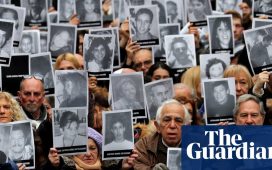On Monday, the justices accepted a closely watched case that has been at the top of religious conservatives’ Supreme Court wish list. It challenges the City of Philadelphia’s termination of a contract with Catholic Social Services, one of the private agencies certified to find families to take in foster children. Objecting to same-sex marriage, the agency, which is affiliated with the Archdiocese of Philadelphia, won’t place children with same-sex married couples. It thus refuses to abide by the city’s Fair Practices Ordinance, which bars discrimination on the basis of sexual orientation, among other characteristics.
When, for that reason, the city’s Department of Human Services stopped referring children to Catholic Social Services for placement, the agency, known as C.S.S., sued, claiming a violation of its religious liberty. It lost in both Federal District Court and in the United States Court of Appeals for the Third Circuit, which held in a ruling last April that “the city’s nondiscrimination policy is a neutral, generally applicable law, and the religious views of CSS do not entitle it to an exception from that policy.”
In one major respect, the claim in this case, Fulton v. Philadelphia, resembles the claim in a case from Montana that the court heard last month. In that case, Espinoza v. Montana Department of Revenue, parents who want to use state scholarship vouchers to send their children to religious schools are claiming a violation of their religious rights because the voucher program was terminated by the Montana Supreme Court. Montana’s Constitution prohibits spending public money for religious education, and rather than vet the nature of each school at which a voucher might be used, the state court shut the program down for religious and nonreligious schools alike. So, on the one hand, the parents want religious schools to be treated like any other schools. On the other hand, they seek special treatment in the face of the voucher program’s across-the-board termination.
In similar fashion, Catholic Social Services on the one hand seeks treatment as an equal among the several dozen agencies the city contracts with for foster placements. On the other hand, it claims the right to not follow a law that applies to everyone.
In two other respects, however, this new case is even more portentous — or promising, depending on one’s view — than the others. Five years after it ruled in favor of same-sex marriage, the Supreme Court has yet to fully address the objections of those who claim religious reasons for refusing to treat same-sex couples as equals. (The court failed to say anything meaningful two years ago in the case of the baker who wouldn’t bake a cake to celebrate a same-sex marriage.) Other such cases are pending, including one from a florist who doesn’t want to arrange flowers for a same-sex wedding. The court has not yet acted on that appeal, Arlene’s Flowers v. Washington, which was filed in September. Although the Catholic Church is not a direct party in the Philadelphia case, it is clearly the central actor in its agency’s dispute with the city, leaving no ambiguity about the doctrinal basis for the claimed right to an exemption. Whether a baker is a “cake artist” entitled to deploy his creative gifts as he chooses is not the kind of distraction that will emerge when the case is argued next fall.
Finally, the new case is especially important in offering the court a chance to do formally and in one sweep what the conservative justices have been trying to do more quietly case by case. Catholic Social Services is asking the court to overturn a 30-year-old decision, Employment Division v. Smith, which held that as a general matter, the Constitution’s free-exercise clause provides no exemption from a generally applicable law, so long as the law wasn’t enacted to target religion. (The Third Circuit’s decision invokes the precise language from Justice Antonin Scalia’s majority opinion in the Employment Division case.)
Congress’s response to that decision was swift. It passed both the Religious Freedom Restoration Act and the Religious Land Use and Institutionalized Person’s Act with the goal of blunting the force of the 1990 decision by forbidding government from interfering with religious practices unless it could show a compelling need to do so. (The court later ruled that Congress lacked the power to impose the Religious Freedom Restoration Act on the states, many of which have now passed their own versions.)






